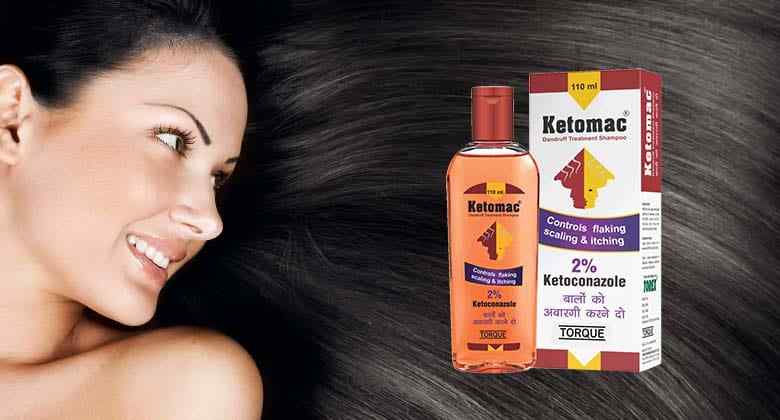
Dandruff is a scalp condition that is often regarded as a chronic problem and is marked by the peeling of the skin on your scalp. Dandruff is not infectious or severe, but it can be awkward and, at times, hard to treat. The best thing about dandruff is that it can be controlled easily. Mild cases of dandruff may need nothing more than shampooing daily with a gentle cleanser. More-obstinate cases of dandruff often react to medicated shampoos. Go through this blog to learn about natural anti-dandruff shampoo.
Common causes of dandruff
Dandruff can be caused due to several reasons, some of which are mentioned below:
- Seborrheic dermatitis is one of the most frequent causes of dandruff, marked by greasy, red skin covered with flaky yellow or white scales. Seborrheic dermatitis may affect your scalp and other areas rich in oil glands, such as the sides of your nose, eyebrows, the backs of your ears, groin area, breastbone (sternum) and, at times, your armpits.
- Malassezia: This is a yeast-like fungus that lives on the scalps of most adults. But, in a few, it infuriates the scalp and can cause more skin cells to grow. The other skin cells expire and fall off, making them look flaky and white in your hair or on your clothes.
- Not shampooing frequently: If you do not wash your hair regularly, skin cells and oils from your scalp can build up, causing dandruff.
- Sensitivity to hair care products: At times, sensitivities to definite ingredients in hair care products or hair dyes can cause a scaly, itchy, red scalp.
- Dry skin: Flakes from dry skin are usually smaller and less oily than those from other causes of dandruff. And inflammation or redness is unlikely. You will most likely have dry skin on other parts of the body, such as your arms and legs.
- Inadequate hair brushing: Brushing or combing the hair regularly reduces the risk of dandruff, as it aids in the normal shedding of skin.
- Several skin conditions: People with eczema, psoriasis, and some other skin disorders tend to get dandruff more often than others. Tinea capitis, which is a fungal infection, can cause dandruff.
Symptoms
Dandruff symptoms are easy to find as they are white, oily-looking flakes of dead skin that dot your shoulders and hair and a probably itchy, scaly scalp. The condition may get worse during the fall and winter, as indoor heating can contribute to dry skin, and the condition can get better during the summer.
A kind of dandruff known as cradle cap can affect babies. This disorder can cause a crusty, scaly scalp and is most widespread in newborns. However, it can take place anytime during childhood. Even though it can be upsetting for parents, the cradle cap is not risky and typically clears up on its own.
Usually, dandruff does not necessitate a doctor’s intervention. However, if over-the-counter dandruff shampoos are not helping, or if your scalp becomes swollen or red, see your doctor or a doctor specialising in skin conditions.
Standard preventive measures for dandruff
- Take care of your hair: Comb your hair regularly, apply oil, and then shampoo it at least thrice a week. This will help in preventing dandruff.
- Get rid of stress: High-stress levels can cause certain health complications. Even though there is no direct connection between stress and dandruff, medical conditioners suggest that reducing stress can help in decreasing dandruff to a great extent.
- Include foods high in zinc and vitamin B in your diet: Foods such as oysters, red meat, and poultry are high in zinc, which assists regulate the amount of sebum your body makes. Moreover, eating vitamin-B-rich foods such as cereals, beans, and fish help the body break down fatty acids and carbohydrates, resulting in dandruff symptoms if not metabolized appropriately.
Home remedies to treat dandruff
- Coconut oil: This is often used as a natural remedy for dandruff. Warm coconut oil may enhance skin hydration and stop dryness, thus treating dandruff. Coconut oil can also be mixed with fenugreek seeds powder or lemon to cure dandruff.
- Curd: This is another popular home remedy that can treat dandruff. Curd should be applied to the scalp and hair, left for an hour, and then shampooed the hair.
- Green tea contains antimicrobial and antioxidant properties that can help endorse scalp health while conditioning your hair.
- Neem leaves: It helps relieve itching and hinder the overgrowth of dandruff-causing fungus.
- Apple cider vinegar: This is one of the best home remedies for treating dandruff and hair fall. You can mix water with apple cider vinegar and leave it on your hair for a few minutes before washing it.
- Orange Peels: They contain acidic elements that can assist decrease excess oil. This will deal with your dandruff issue ultimately.
- Baking soda: Baking soda is ideal for combating the overactive fungi that cause dandruff. It makes for a great exfoliate that is gentle on your skin and assists to get rid of dead skin. It also absorbs any excess oil from your scalp, thus fighting against dandruff.
These are some of the common home remedies you can use to prevent dandruff.
If you are looking for a good anti-dandruff shampoo, you should try using Ketomac, as this is one of the best natural anti-dandruff shampoos available on the market. This all-natural dandruff shampoo contains Ketoconazole as its main ingredient, and this ingredient helps in fighting dandruff and other scalp conditions.
To get the best result, use Ketomac shampoo on the wet hair, massage it into a lather, leave the shampoo for 5 to 10 minutes, and then wash your scalp and hair thoroughly. This shampoo can be used twice a week and continues for a month.

